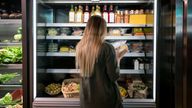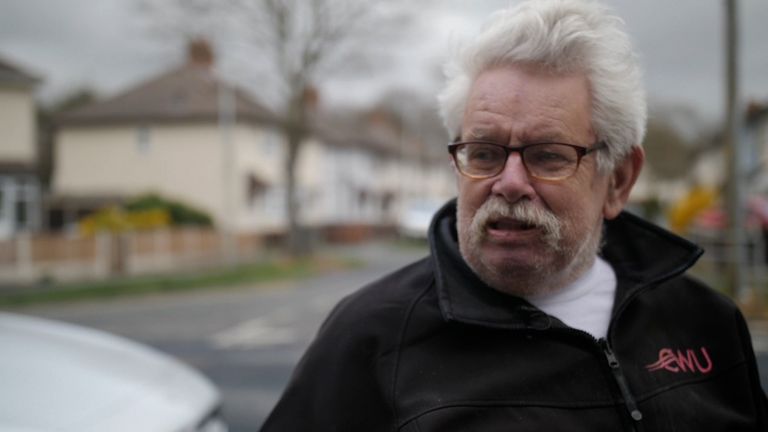Inflation rises to 7% as cost of living crisis deepens
The annual rate of inflation shot up to a fresh 30-year high of 7% in March reflecting, for the first time, the immediate effects of Russia’s invasion of Ukraine.
The largest contributors to growing inflation were increased fuel prices and energy bills, according to the Office for National Statistics (ONS).
The consumer prices index (CPI) rose from 6.2% in February and was higher than expected, with economists having predicted a rate of 6.7%.
Read more: See how much your spending has increased over the past five years
Inflation remains at its highest point since March 1992, when it stood at 7.1%.
Average petrol prices rose by 12.6p a litre between February and March, the largest monthly increase since records began in 1990, according to the ONS.
This compares with a rise of 3.5p a litre between the same months of 2021.
Diesel prices saw spikes of 18.8p a litre, up sharply from 3.5p a litre a year ago.
ONS chief economist Grant Fitzner noted that fuel prices were collected before the fuel duty cut of 5p a litre – but recent reports show that it seems to have done little to cool prices at the pump.
Prices have been increasing across the board as businesses pass on mounting costs to consumers.
Soaring inflation will further stoke fears, in the wake of the meagre 0.1% economic growth achieved in February, that the economy risks a period of so-called stagflation.
The figure for the 12 months to March reflects the 12% increase in the government’s cap on energy prices last October – but does not yet take into account the unprecedented 54% rise that began this month.
The decision was made before Russia’s invasion of Ukraine in late February but a leap in other costs linked to the war were included in the data.
The war led oil prices to hit levels not seen for 14 years while a host of other commodities, such as wheat, were also impacted.
While the Bank of England has signalled that further interest rate rises to curb expectations of higher inflation are less likely in the coming months because of the risk they choke off economic growth – there is further pressure on the chancellor.
Follow the Daily podcast on Apple Podcasts, Google Podcasts, Spotify, Spreaker
Rishi Sunak, under fire this month over his family’s tax affairs and latterly the partygate scandal, had already faced a backlash over the Treasury’s response to the deepening cost of living crisis.
There was particular anger among his critics that the spring statement last month included no new cash for those on benefits given that the Office of Budget Responsibility was predicting the biggest slump in living standards since the 1950s.
Mr Sunak said: “I know this is a worrying time for many families, which is why we are taking action to ease the burdens by providing support worth around £22bn in this financial year, including for the most vulnerable through our Household Support fund.
“We’re also helping as many people as possible into work – the best way for families to gain economic security in the longer term.”
Jack Leslie, senior economist at the Resolution Foundation think tank, warned that with wages not keeping up with rising prices, Britain’s cost of living crisis is “on track to be the biggest squeeze since the mid-70s” and will “continue to worsen before it starts to ease at some point next year”.
Watch Sky News’ Q&A on the cost of living crisis and growing inflation live at 7.30pm tonight.



